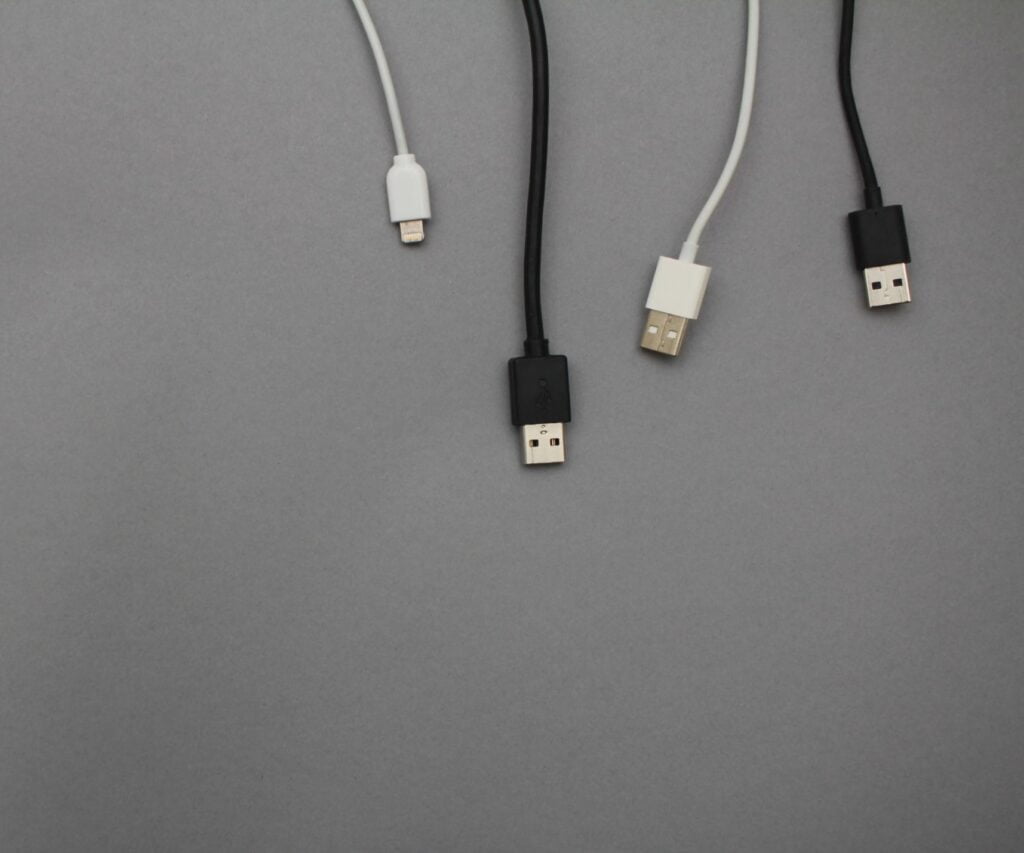It’s no secret that charging your devices faster results in a better user experience. That’s why companies are always developing new tech to make charging faster and more efficient.
But do USB cables have different charging speeds? This is a question that many people have asked. Some people say that their USB cable charges faster than others.
While others claim that there is no difference and the charging speed of the phone depends on the charging brick and the smartphone itself. So, what’s the truth?
The answer is Yes different USB cables have different charging speeds. It has become evident that the charging speed is influenced by both the charger and the USB cord.
As a result, both the fast charger and the USB cable that supports fast charging are necessary for fast charging.
In this blog post, we will take a look at how charging cables differ in speed from one another and how to identify a fast charging cable.

How to Identify a Fast Charging Cable?
Not all USB cables are made from the same materials or have the same specification and some other stuff that allows for different USB cables to have different transfer rates.
There are some things that you can look out for that will help you identify a USB cable that supports fast charging or not.
Thick Cables
Fast charging cables are thicker since they have more wires on the inside. In some cases this is accurate, USB cables that can handle more power are often thicker.
But this is not a foolproof way to identify a fast USB cable. However, you should avoid thin cables because they are more likely to break.
Check specification
The best way of finding out if a USB cable can handle fast charging or not is to check the specification of the particular cable. A good USB cable will have all the detail and specification mentioned on it.
A cable can be classified as a fast-charging cable if its voltage is around 5, 9V, etc. The second thing is the amperage.
If the USB cable has a maximum amperage of below 2 amps it is a normal cable, not a fast cable anything with a capacity of less than 1000mAh or 1 amp is regarded as a slow charger.
Ideally, you should look for a fast-charging cable with an output amperage of 2. So if you need to purchase a USB cable, make sure it can handle 2 amps of current passing through it minimum to charge your devices quickly.
Buy good quality
When you are looking to buy USB cables, make sure you purchase them from a reputable store. There are a lot of cheap knock-offs in the market that can damage your devices.
It is always better to buy USB cables from official stores or certified brands. This way you can be sure that you are getting a quality product.
It is better to invest in good-quality USB cables because they will last longer and charge your devices faster.
Use it
Another way to identify a fast charging cable is by using it. Just plug it in and see how long it takes to charge your device camper to maybe some other cable that you have.
USB cables that support fast charging will charge your devices faster. If you see a difference in the charging time, then it is most likely that the USB cable you are using supports fast charging.
You should start using that USB cable for charging to improve your overall charging experience. USB cables that don’t support fast charging can bed bad because supplying a device with less amperage is not a good idea.
Do some USB cables charge faster?
The answer is yes, USB cables do have different charging speeds. USB cables that can handle more power are often thicker and can handle a higher amount of current passing through them.
Not to mention in comparison to standard USB, USB-C type cables can charge a device up to 20 times faster.
USB C is now becoming the standard for charging and data transfer in many devices. USB-C cables can transfer more power than standard USB cables. Not to mention they are also reversible, so you don’t have to worry about which side is up.
Are all USB cables the same speed
No, USB cables do have different charging speeds. Just like most things, there are different brands in the market with different USB cables.
Various connectors, various speeds. There are several distinct USB connectors and cables available, in addition to at least three different USB versions.
Conclusion
I hope you found this article helpful. To recap USB cables can have different speeds because not all of them are made for one device. They can differ a bit depending on the USB version, the USB connector, and what it is made for.
The best way to check if the cable can handle fast charging is by checking the specification, the amperage, and the voltage.
A certified USB cable will have all these details mentioned on its packaging. You can also use the USB cable to test and see if there is a difference in the charging time.
